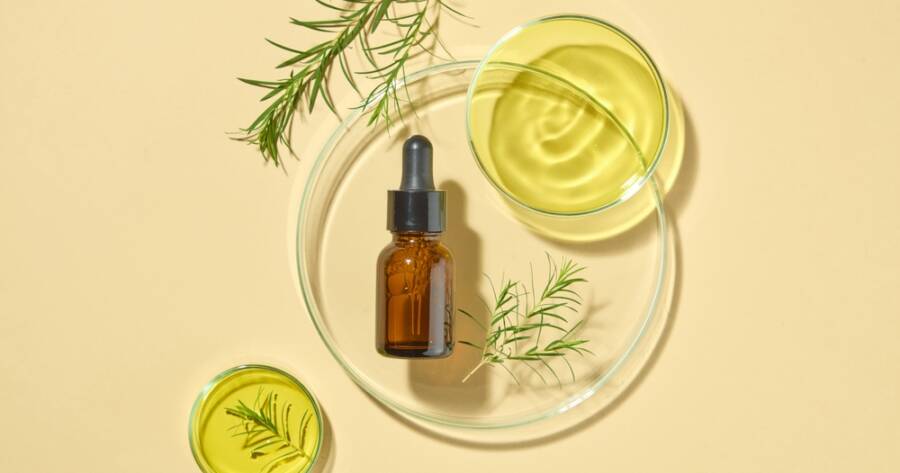Tea tree oil, a beloved natural remedy with deep roots in traditional Australian medicine, is renowned for its remarkable health benefits. Its antiseptic and antibacterial properties make it a versatile agent in treating skin ailments like acne and athlete’s foot, while also playing a key role in hair, scalp, and oral health. As more research uncovers its potential, this natural essential oil remains a staple in the wellness toolkit, brimming with possibilities for holistic health enthusiasts.
The Incredible Health Benefits Of Tea Tree Oil
Tea tree oil, also known as melaleuca oil, has been cherished for centuries, particularly by indigenous Australians who have utilized its health-promoting properties for generations. Extracted by steaming the leaves of the Australian tea tree, this essential oil is renowned for its antiseptic and antibacterial properties, making it a versatile natural remedy. The oil is primarily recognized for its topical use in treating a myriad of skin conditions, such as acne, athlete’s foot, and insect bites.
Treating Skin Conditions Naturally
One of the primary uses of tea tree oil is for skin health, where its antiseptic properties are highly valued. Studies suggest that a treatment gel containing tea tree oil can relieve acne and its symptoms due to its anti-inflammatory effects.
Additionally, research supports its effectiveness against skin oiliness and itchy skin, providing a natural alternative for skin irritation and inflammation. However, despite these benefits, individuals with sensitive skin should exercise caution, as tea tree oil may cause skin irritation.
Applications in Hair and Scalp Care
Tea tree oil is not just beneficial for the skin; it may also significantly enhance hair and scalp health. Many find relief from dandruff by incorporating tea tree oil into their hair care regimen. A shampoo containing the oil may effectively eliminate dead skin cells and reduce scalp itchiness when used regularly. The oil’s cleansing properties contribute to hair rejuvenation, maintaining its shine while fostering a healthy scalp.
Alleviating Minor Injuries and Insect Bites
In the realm of natural remedies, tea tree oil offers antiseptic relief for minor skin irritations such as cuts, scrapes, and burns. When applied diluted, it may help soothe insect bites and calm irritations, proving to be a handy addition to a natural first aid kit. Furthermore, preliminary studies suggest that tea tree oil may offer relief from mite infections, although further research is warranted to confirm these findings.
Supporting Oral Hygiene
The antibacterial prowess of tea tree oil extends beyond the skin and scalp, playing a role in oral health as well. Its presence in mouthwash and toothpaste formulations helps combat bacteria in the mouth, thus enhancing oral hygiene by reducing cavity-causing acids and ensuring fresh breath.
Precautions and Safety Considerations
While tea tree oil is celebrated for various therapeutic effects, users should be mindful of potential risks. It is critical never to ingest tea tree oil, as it can cause severe symptoms, including confusion and decreased levels of consciousness.
Topical use is generally safe but may result in allergic reactions or skin irritation in some individuals. The inclusion of tea tree oil in pregnant or breastfeeding individuals’ routines requires medical consultation due to limited research on its safety in these populations.
Why You Should Learn More About Tea Tree Oil
Given the myriad benefits of tea tree oil—from promoting skin health to enhancing hair shine and supporting oral hygiene—this natural remedy deserves further attention and exploration. Beyond the immediate effects, continuous research and empirical validation of its benefits will deepen understanding and expand its applications.
As interest in natural health solutions grows, tea tree oil remains a compelling option worth considering. Participants in the natural health sphere might greatly benefit from discovering more about its versatile uses and potential inclusion in their wellness regimen.
Sources
Tea Tree Oil’s Antibacterial Properties
Tea Tree Oil Benefits for Hair and Oral Health



